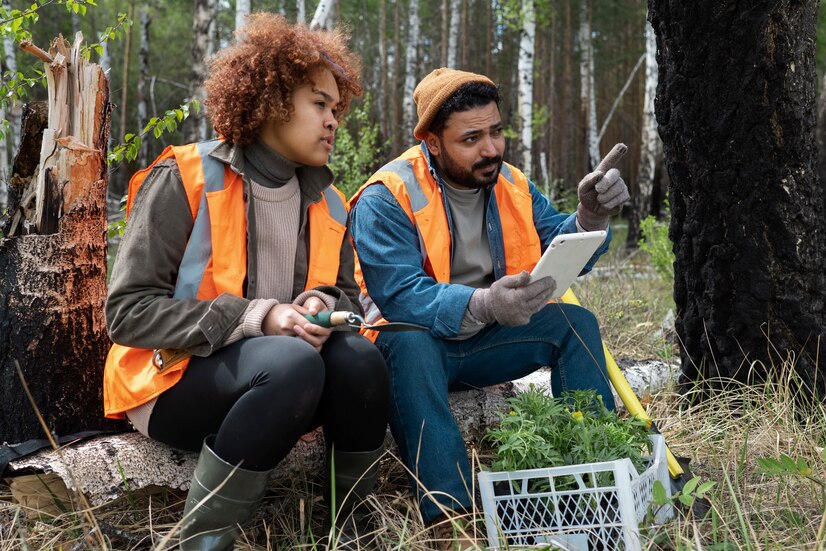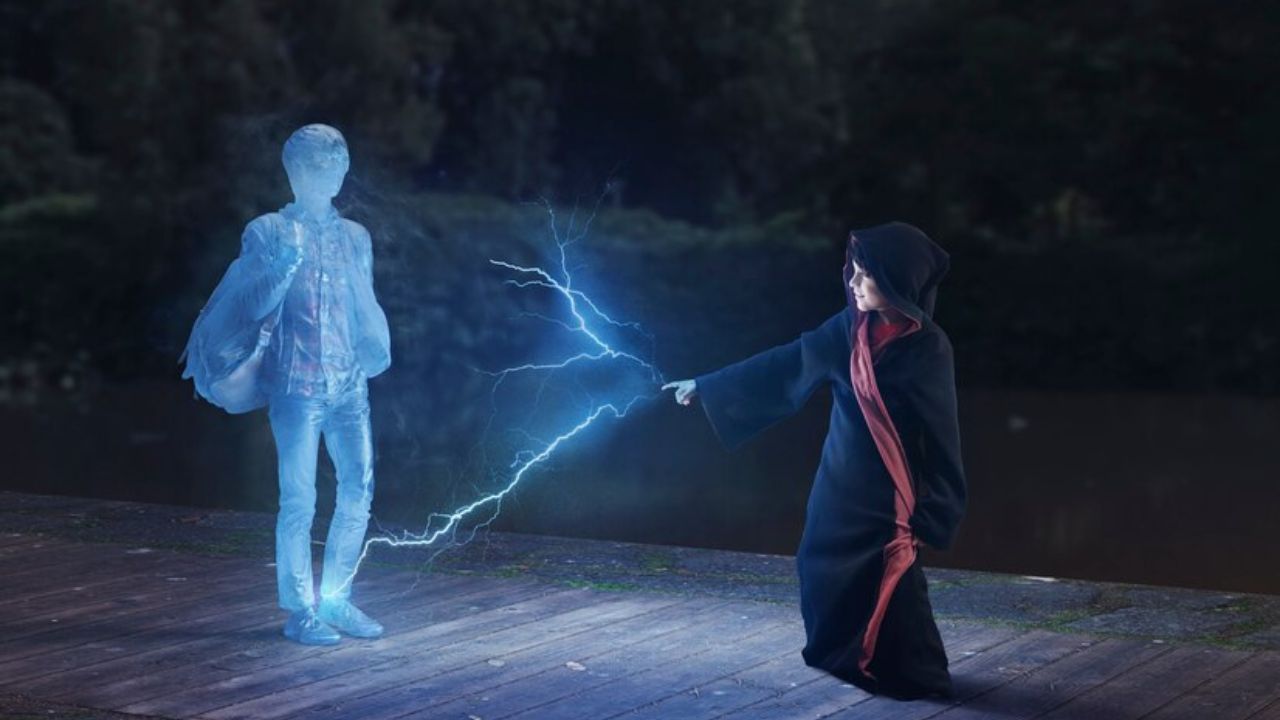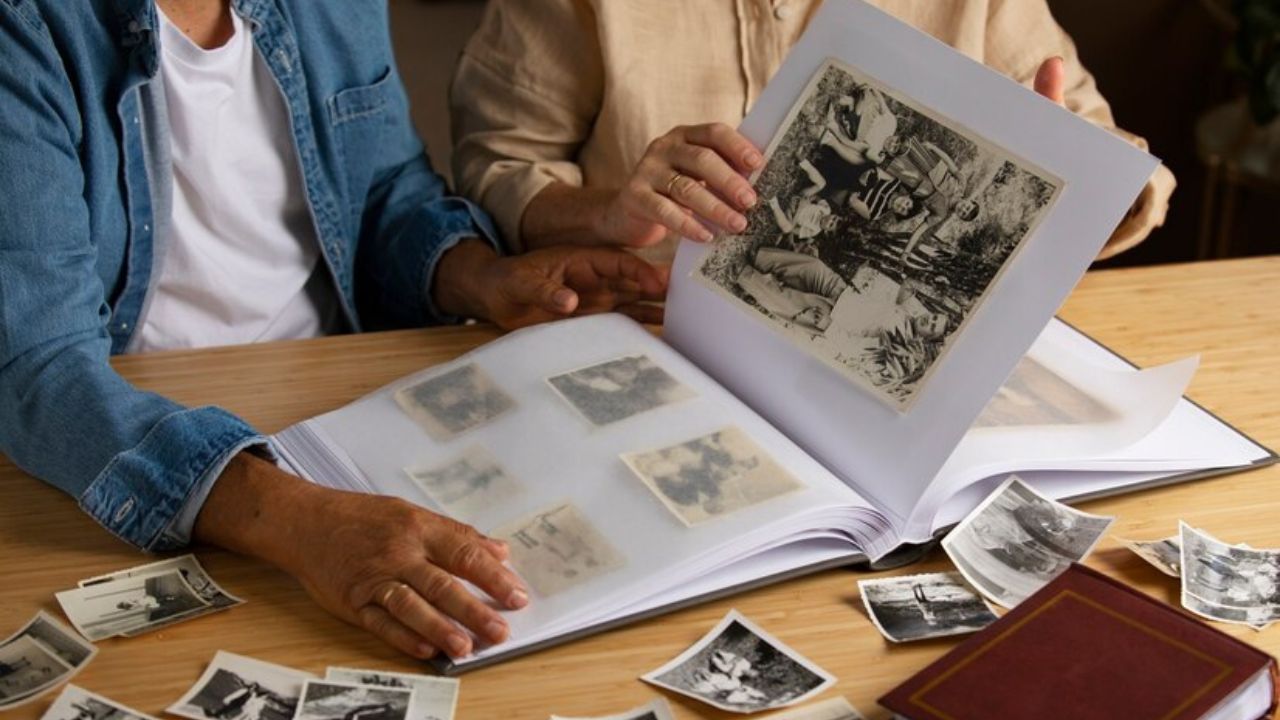LIFESTYLE
BlueFire Wilderness Lawsuit: Understanding the Controversy

Welcome to the eye-opening journey into the world of wilderness therapy programs, where a recent lawsuit has stirred up controversy and raised important questions about ethics and accountability. Join us as we delve into the BlueFire Wilderness Lawsuit, uncovering the allegations, responses, and impact on an industry aimed at helping troubled youth find their way back to a brighter future. Get ready for a deep dive into this compelling story that sheds light on both the challenges and opportunities facing wilderness therapy programs today.
The Claims Against BlueFire Wilderness Lawsuit
The claims against BlueFire Wilderness Lawsuit have sparked a wave of concern and debate within the industry. Allegations range from negligence in supervision to emotional harm inflicted on participants during their wilderness therapy programs. Families of former attendees have come forward with accounts of mistreatment and inadequate care provided by the program.
Critics argue that the focus on profit may have compromised the quality of services offered, leading to potentially harmful situations for vulnerable individuals seeking help. Reports of incidents involving physical restraint and lack of proper medical attention have raised serious questions about the ethics and safety practices at BlueFire Wilderness.
As investigations unfold, it remains crucial for transparency and accountability to guide the resolution process. The outcome will not only impact those directly involved but also set a precedent for how wilderness therapy programs are regulated moving forward.
Response from BlueFire Wilderness Lawsuit
In response to the allegations brought forth in the BlueFire Wilderness Lawsuit, the program has taken a proactive approach to address concerns raised by former participants and their families. BlueFire Wilderness emphasizes transparency and accountability in its actions, striving to uphold the highest standards of care for those entrusted to their program.
Acknowledging the gravity of the situation, BlueFire Wilderness has implemented new policies and procedures aimed at enhancing safety protocols and improving overall communication with families. The organization is committed to learning from past experiences and continuously evolving to better serve its clients.
By actively engaging with stakeholders and seeking feedback from all parties involved, BlueFire Wilderness demonstrates a genuine commitment to fostering a culture of trust and collaboration within its community. This dedication highlights a willingness to listen, learn, and adapt in order to ensure positive outcomes for everyone impacted by their programs.
Analysis of the Controversy
The controversy surrounding the BlueFire Wilderness Lawsuit has sparked intense debate and scrutiny within the wilderness therapy community. Many are questioning the practices and protocols of such programs, while others are defending the industry as a whole.
Critics argue that incidents like this shed light on potential risks and dangers associated with wilderness therapy, highlighting the need for stricter regulations and oversight. On the other hand, proponents suggest that these programs provide valuable therapeutic experiences for troubled youth.
It is crucial to delve deeper into this controversy to understand its complexities fully. By examining all perspectives and considering various factors at play, we can gain a more comprehensive understanding of the situation. This analysis will help inform future decisions regarding wilderness therapy programs and ensure better safeguards for participants in such programs.
Impact on the Industry of Wilderness Therapy Programs
The BlueFire Wilderness lawsuit has sent shockwaves through the industry of wilderness therapy programs. It has raised important questions about the safety and ethics of such programs, prompting a closer examination of their practices.
Many other wilderness therapy programs are now facing increased scrutiny as a result of this controversy. The industry as a whole is being forced to reevaluate its protocols and ensure that the well-being of participants is always the top priority.
This incident has also highlighted the need for clearer regulations and oversight in wilderness therapy programs. There is a growing call for more transparency and accountability to prevent similar issues from arising in the future.
The impact on the industry of wilderness therapy programs cannot be understated. It serves as a wake-up call for all providers to prioritize safety, ethical standards, and proper training for staff members to protect those under their care.
Lessons Learned and Changes Made by BlueFire Wilderness
BlueFire Wilderness took the lawsuit as a wake-up call, leading them to reevaluate their policies and practices. One of the key lessons learned was the importance of clear communication between staff members during wilderness therapy sessions. By enhancing communication protocols, BlueFire aimed to ensure that all team members are on the same page when it comes to ensuring the safety and well-being of participants.
Moreover, they recognized the significance of regular training and education for their staff members. This included providing additional resources on de-escalation techniques and conflict resolution strategies in challenging situations that may arise during therapy sessions. By investing in ongoing training programs, BlueFire aimed to equip their staff with the necessary skills to handle various scenarios effectively.
Additionally, they implemented stricter monitoring processes to closely track participant progress and address any concerns promptly. This proactive approach allowed BlueFire Wilderness to identify potential issues early on and implement necessary interventions before they escalate. Through these changes, BlueFire Wilderness demonstrated a commitment to continuously improving their services and prioritizing the safety of those under their care.
Conclusion: Moving Forward in the Aftermath of the Lawsuit
The BlueFire Wilderness lawsuit has shed light on the importance of transparency, accountability, and ethical practices within wilderness therapy programs. While controversy may have surrounded BlueFire Wilderness in the past, it is essential to acknowledge the steps they have taken towards addressing concerns and making necessary changes to ensure the safety and well-being of their students.
As we navigate through these challenging times, it is crucial for wilderness therapy programs like BlueFire Wilderness to learn from past mistakes, implement stricter protocols, provide proper training for staff members, and prioritize open communication with both families and regulatory authorities. By doing so, they can rebuild trust within the community and continue to offer valuable support to those in need.
It is our hope that this article has provided a comprehensive understanding of the BlueFire Wilderness lawsuit while emphasizing the significance of upholding high standards in therapeutic interventions for troubled youth. Let us move forward with a collective commitment to safeguarding vulnerable individuals and promoting positive growth and healing in all aspects of wilderness therapy programs.

LIFESTYLE
Wave_of_Happy_: Navigating Life Journey with Joy

Wave_of_Happy_ and navigate life’s journey with joy? Imagine coasting through challenges, embracing triumphs, and basking in the glow of positivity. In this blog post, we will explore how to surf the waves of happiness, conquer obstacles with a smile, and cultivate a community that uplifts your spirit. Get ready to dive into the world of joyful living!
What is the Wave_of_Happy_?
The Wave_of_Happy_ is like a gentle breeze on a sunny day, bringing warmth and light to your life. It’s the feeling of contentment that washes over you when everything seems just right. This wave carries with it a sense of peace and fulfillment, guiding you through both calm waters and turbulent seas.
Riding the Wave_of_Happy_ means embracing positivity in all aspects of your life, from small everyday moments to significant milestones. It’s about finding joy in the little things and gratitude for what you have. This wave encourages mindfulness, allowing you to appreciate the present moment without dwelling on past regrets or future worries.
When you catch onto the Wave_of_Happy_, you’ll notice a shift in your perspective – challenges become opportunities for growth, setbacks are temporary detours on your journey towards happiness. This wave empowers you to see the bright side of situations and approach life with optimism and resilience.
How to Ride the Wave_of_Happy_
The Wave_of_Happy_ is like an ocean wave, constantly ebbing and flowing in our lives. To ride this wave successfully, we must learn to navigate its highs and lows with grace and resilience.
One way to ride the Wave_of_Happy_ is by practicing gratitude daily. Taking time to appreciate the little things can help shift your perspective towards positivity.
Another essential aspect of riding this wave is staying present in the moment. By focusing on the now rather than worrying about the past or future, you can fully immerse yourself in joy.
Setting intentions for each day can also help you steer through challenges that may come your way. Having a clear purpose allows you to stay grounded and focused on what truly matters.
Surround yourself with people who lift you up and support your journey towards happiness. Building a strong community of positive influences can make riding the Wave_of_Happy_ much smoother and more enjoyable.
The Benefits of Living a Joyful Life
Living a joyful life comes with a multitude of benefits that can positively impact every aspect of your day-to-day experiences. When you embrace the Wave_of_Happy_, you invite an abundance of positivity into your world. Joy has the power to uplift your mood, boost your overall well-being, and enhance your resilience in facing life’s challenges.
Choosing joy paves the way for improved physical health, as happiness is closely linked to lower stress levels and enhanced immune function. Additionally, living joyfully can foster stronger relationships with others, creating deeper connections and fostering a sense of community.
Joyful individuals tend to be more creative and productive, as their optimistic outlook fuels their motivation and drive towards achieving goals. Furthermore, maintaining a positive mindset helps in cultivating gratitude and appreciation for the present moment.
In essence, the benefits of embracing joy extend far beyond just feeling good; it shapes how we interact with the world around us and sets the stage for a fulfilling life journey filled with meaning and purpose.
Overcoming Obstacles and Challenges on Your Journey
Life is a journey filled with twists and turns, highs and lows. Along the way, we are bound to encounter obstacles and challenges that test our strength and resilience. These hurdles can come in various forms – from personal setbacks to external circumstances beyond our control.
When faced with challenges on your journey towards happiness, it’s essential to embrace a positive mindset. Instead of seeing obstacles as roadblocks, view them as opportunities for growth and self-discovery. Remember that every challenge you overcome makes you stronger and more resilient.
One powerful way to navigate through difficulties is by practicing gratitude. Focusing on what you are grateful for can shift your perspective and help you see the silver lining even in tough times. Additionally, seeking support from loved ones or a community can provide encouragement and guidance when facing obstacles.
Remember, it’s okay to stumble along the way; what matters most is how you choose to rise above challenges with grace and perseverance. Let each obstacle be a stepping stone towards greater joy and fulfillment on your life journey.
Tips for Maintaining a Positive Mindset
Maintaining a positive mindset is crucial for riding the Wave_of_Happy_. One tip is to start your day with gratitude. Reflect on what you’re thankful for, setting a positive tone. Another tip is to practice mindfulness. Stay present in the moment, letting go of worries about the past or future.
Engage in activities that bring you joy and fulfillment. Whether it’s reading a book, going for a walk, or spending time with loved ones, prioritize self-care. Surround yourself with positivity by limiting exposure to negative influences like toxic relationships or media.
Challenge negative thoughts by reframing them into more positive perspectives. Focus on solutions rather than dwelling on problems. Remember that setbacks are opportunities for growth and learning.
Embrace affirmations and visualization techniques to reinforce optimism and confidence in yourself. Celebrate small victories along your journey towards happiness and fulfillment.
Creating a Supportive Community for a Happier Life
Creating a supportive community is like planting seeds in fertile soil, nurturing growth and connection. It’s about surrounding yourself with individuals who uplift and inspire you to be the best version of yourself. In this community, kindness blooms, empathy flourishes, and understanding thrives.
Building relationships based on trust and positivity is essential for fostering a sense of belonging and acceptance. Shared experiences, laughter, and shared goals strengthen bonds that can weather any storm life throws your way. Whether celebrating victories or offering a listening ear during tough times, a supportive community provides unwavering support.
By giving back to others within the community, you contribute to its collective well-being while also reaping the benefits of reciprocity. Small gestures of kindness create ripples of joy that spread far and wide, enhancing everyone’s overall happiness quotient.
In this interconnected web of support and camaraderie lies the foundation for a happier life journey filled with love, compassion, and shared moments that make life truly meaningful. Building bridges instead of walls cultivates an environment where everyone thrives together as one cohesive unit on the wave_of_happy_.
Conclusion: Embracing the Wave_of_Happy_ for a Fulfilling Life Journey
Embracing the Wave_of_Happy_ allows you to navigate life’s journey with joy and fulfillment. By riding the wave, overcoming obstacles, maintaining a positive mindset, and creating a supportive community, you can experience the benefits of living a joyful life. Remember that challenges may arise along the way, but with resilience and optimism, you can continue on your path towards happiness. So embrace the Wave_of_Happy_ today and let it guide you towards a more fulfilling life journey!
LIFESTYLE
Youj: A Comprehensive Guide to Understanding and Embracing a Modern Phenomenon

Welcome to the exciting world of Youj – a modern phenomenon that has taken the digital landscape by storm! Whether you’re a seasoned user or a curious newcomer, this comprehensive guide will delve into the history, impact, controversies, and personal growth aspects of Youj. Join us on this journey as we unravel the secrets behind this captivating platform and explore how it has shaped society and culture in profound ways. Let’s dive in!
The History and Evolution of Youj
Youj, a modern phenomenon that has taken the digital world by storm, has a rich history and an intriguing evolution. It all began with the emergence of video-sharing platforms in the early 2000s, paving the way for user-generated content to flourish. As technology advanced, so did Youj, offering a diverse range of content from entertainment to education.
Over time, Youj underwent significant changes to its algorithms and features to enhance user experience. The introduction of monetization options for creators revolutionized online content creation and transformed ordinary individuals into influencers with global reach.
The evolution of Youj also saw collaborations between creators and brands, leading to innovative marketing strategies and new avenues for revenue generation. As social media platforms integrated seamlessly with Youj, cross-platform promotion became common practice among content creators seeking broader audiences.
Today, Youj continues to evolve rapidly in response to changing trends and user preferences, solidifying its position as a dominant force in the digital landscape.
The Impact of Youj on Society and Culture
The impact of Youj on society and culture cannot be understated. It has revolutionized the way we consume media, connect with others, and even shape our identities. Youj has created a platform for diverse voices to be heard and stories to be shared on a global scale.
With its vast reach and influence, Youj has the power to shape trends, beliefs, and behaviors in ways we have never seen before. From shaping pop culture phenomena to influencing political discourse, Youj plays a significant role in molding societal norms.
Moreover, Youj has blurred the lines between celebrity status and everyday individuals by creating new types of influencers who resonate with audiences worldwide. The democratization of fame through Youj has redefined traditional notions of success and stardom.
As society continues to evolve alongside technology, it will be fascinating to observe how Youj further impacts our values, perceptions, and interactions in the years to come.
Understanding the Appeal of Youj: Why People Love It
Youj has a magnetic appeal that draws people in with its diverse range of content. From entertaining videos to educational tutorials, Youj offers something for everyone’s tastes and interests.
One reason why people love Youj is its ability to provide instant access to an endless array of information and entertainment at their fingertips. Whether you’re looking for cooking tips, workout routines, or just a good laugh, Youj has it all.
Furthermore, the personal connection viewers feel with Youj creators plays a significant role in its popularity. Many users develop a sense of loyalty and admiration towards their favorite Youj personalities, forming a unique bond unlike traditional media outlets.
The interactive nature of Youj also sets it apart from other forms of entertainment. Viewers can like, comment, and share videos with ease, creating a sense of community among users who share common interests.
The appeal of Youj lies in its versatility and accessibility – offering an immersive experience that caters to individual preferences and fosters engagement within a global online community.
How to Navigate and Use Youj Properly
Navigating and using Youj properly is essential in maximizing your experience on the platform. To start, create a user account to access personalized recommendations based on your interests. Explore different categories like entertainment, education, or lifestyle to discover diverse content.
Utilize the search bar to find specific videos or channels you enjoy. Engage with creators by liking, commenting, and subscribing to show support for their content. Customize your feed by adjusting settings for notifications and preferences.
Be mindful of privacy settings when sharing personal information online. Avoid spreading misinformation or engaging in harmful behaviors that could impact others negatively. Stay updated on community guidelines to maintain a safe and respectful environment for all users.
Experiment with creating your own content if you feel inspired! Share your passions and talents with the world while staying true to yourself. Enjoy exploring Youj as a platform for learning, entertainment, and connection with others.
The Controversies Surrounding Youj: Criticisms and Responses
The realm of Youj’s is not without its fair share of controversies and criticisms. Some argue that it promotes unrealistic standards, leading to feelings of inadequacy among viewers. Others raise concerns about the potential impact on mental health due to excessive consumption. In response, content creators often emphasize authenticity and transparency in their videos to foster genuine connections with their audience.
Moreover, there are debates surrounding the monetization of Youj’s , with allegations of clickbait tactics and sponsored content blurring the lines between authenticity and commercial interests. Content moderation also comes into question as platforms navigate issues like misinformation and inappropriate content. As a result, there have been calls for stricter regulations to ensure responsible use of this powerful medium.
Despite these challenges, many users appreciate Youj’s ability to democratize information sharing and creative expression on a global scale. By addressing criticisms constructively and promoting ethical practices, Youj can continue to evolve as a positive force in the digital landscape.
Embracing the Power of Youj: Personal Growth and Development
Embracing the Power of Youj’s goes beyond entertainment; it can also be a powerful tool for personal growth and development. As you engage with diverse content on Youj’s , you expose yourself to new ideas, perspectives, and ways of thinking. This exposure can broaden your horizons and challenge your existing beliefs.
One way to leverage Youj for personal growth is by seeking out educational channels that offer valuable insights in areas like self-improvement, mindfulness, or professional development. By incorporating these lessons into your daily life, you can cultivate new skills and enhance your overall well-being.
Moreover, engaging with communities on Youj’s that share common interests or goals can provide a sense of belonging and support. Connecting with like-minded individuals can inspire you to pursue your passions more actively and push yourself outside of your comfort zone.
In essence, embracing the Power of Youj’s as a catalyst for personal growth involves being intentional about the content you consume and actively applying its lessons to enrich your own journey towards self-improvement.
Conclusion
In a world where digital platforms continue to shape our daily lives, Youj has emerged as a powerful phenomenon that influences how we connect, consume content, and express ourselves. From its humble beginnings to becoming a global force in entertainment and communication, Youj has revolutionized the way we share information and ideas.
As users navigate through the vast landscape of Youj videos, it’s essential to understand both the positive impact it can have on personal growth and development as well as the controversies that surround it. By embracing the power of Youj’s responsibly and thoughtfully engaging with its content, individuals can harness its potential for learning, creativity, and self-expression.
Whether you’re a creator sharing your passion with the world or a viewer seeking inspiration and entertainment, Youj’s offers endless possibilities for connection and discovery. By exploring all that this modern platform has to offer while being mindful of its nuances and complexities, we can fully embrace the transformative power of Youj’s in our lives.
-

 GAME6 months ago
GAME6 months agoMastering the Fire Kirin Login Experience
-

 BLOG8 months ago
BLOG8 months agoPepper0 Mother and Son
-

 BUSINESS8 months ago
BUSINESS8 months agoWhy Your Business Needs an Elite Eagle Product Partner for Growth
-

 FASHION10 months ago
FASHION10 months agoold fashioned news source nyt crossword
-

 BLOG10 months ago
BLOG10 months agoCzech Harem: Understanding the Controversial Phenomenon
-

 BLOG10 months ago
BLOG10 months agoBunkr Albums: A Comprehensive Guide
-

 NEWS10 months ago
NEWS10 months agospencer new york news: A Comprehensive Guide
-

 BLOG7 months ago
BLOG7 months agoEntreTech.org: Empowering Entrepreneurs Through Technology